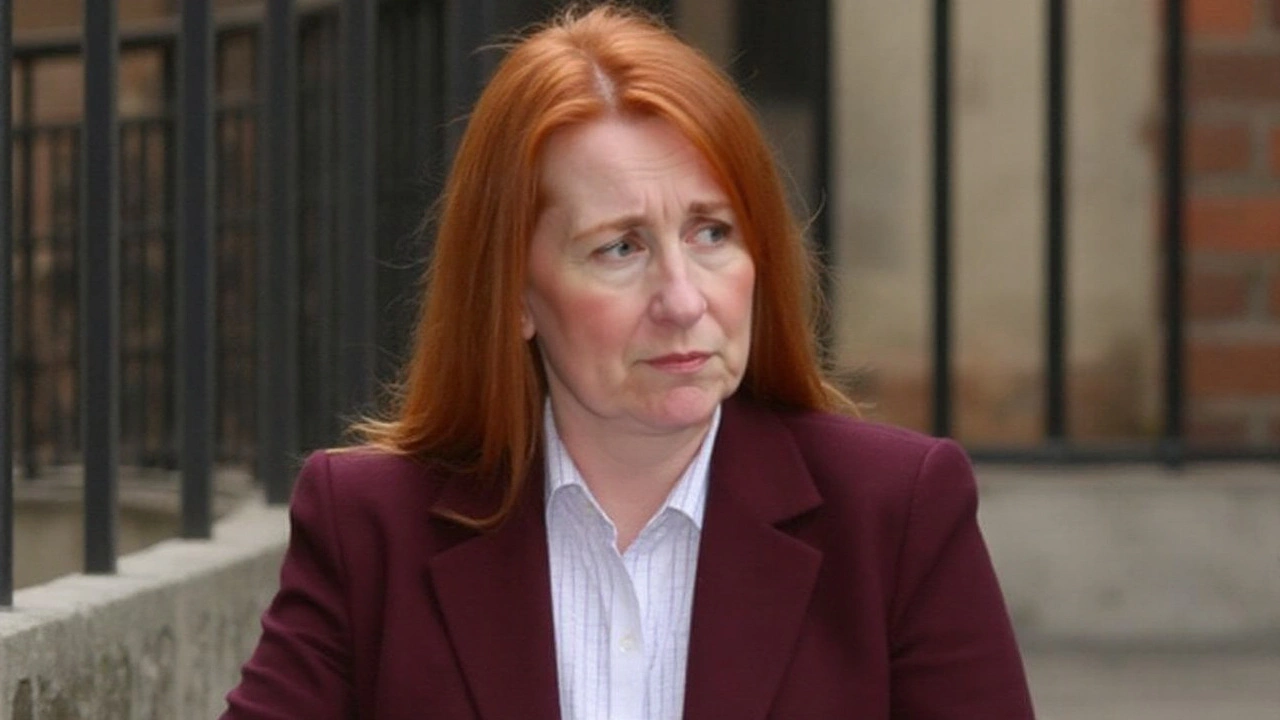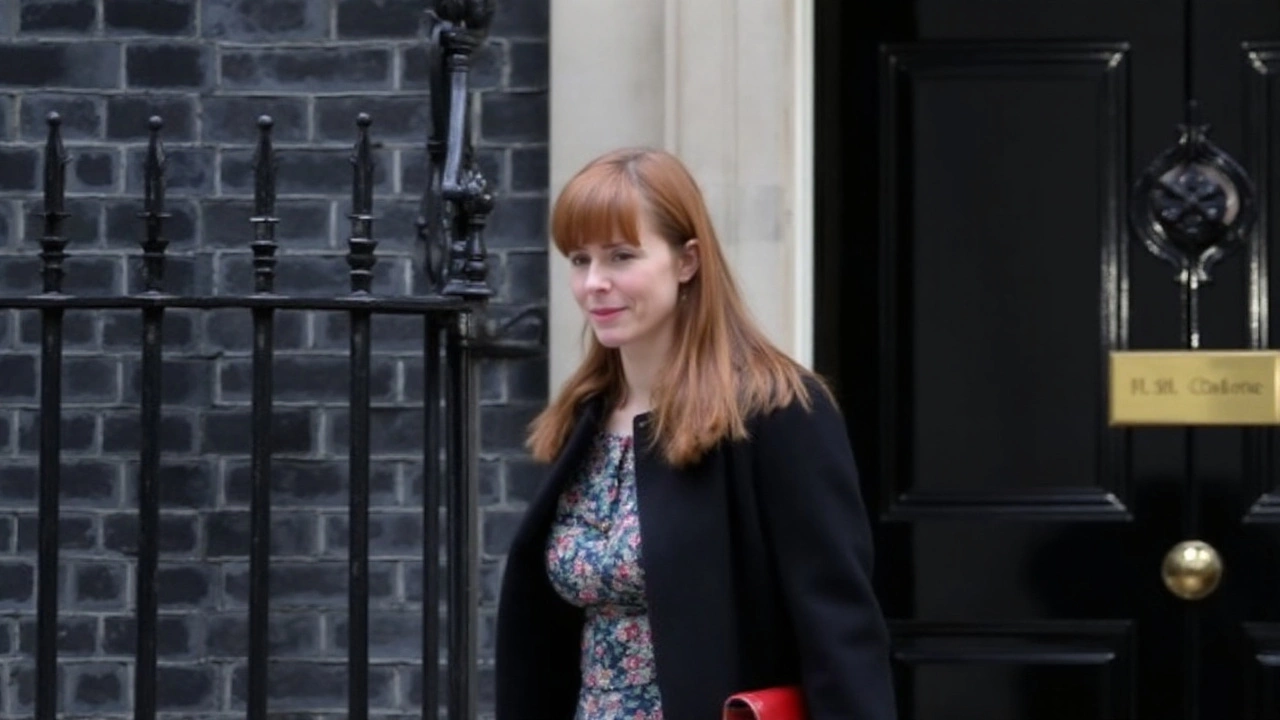A deputy prime minister stepping down over a tax mistake is rare—and politically explosive. On Friday, September 5, 2025, Angela Rayner resigned as the UK’s deputy prime minister and housing secretary after admitting she underpaid stamp duty on a second home in Hove. She referred herself to the government’s ethics watchdog, accepted she breached the ministerial code, and told the prime minister she took full responsibility. Keir Starmer had defended her for weeks, but the storm didn’t ease. David Lammy has now been appointed deputy prime minister as part of a fast-moving reshuffle.
The core of the story is simple: a tax bill on a second home wasn’t paid in full, scrutiny grew, and a senior minister fell. The politics around it are anything but simple. The case touches on fairness in the tax system, standards in public life, and how quickly a personal financial error can become a national political crisis. For Labour, it’s a jolt at the heart of government just as it tries to push ahead on housing and the wider domestic agenda.
What happened and why it matters
Rayner acknowledged she had underpaid stamp duty—formally Stamp Duty Land Tax—on a second property in Hove. In England, second homes attract a higher rate than main residences, including a 3% surcharge on top of standard bands. Underpayments can happen for mundane reasons: treating a property as a primary home when it isn’t, misunderstanding reliefs, or, as Rayner says, receiving poor advice where a trust is involved. She said the confusion arose in part from financial arrangements linked to a court-established trust for her disabled son and admitted she should have sought more specialist advice.
After reviewing the situation, she referred herself to the ethics watchdog and accepted she had breached the ministerial code. That code isn’t just about avoiding outright wrongdoing; it asks ministers to meet the highest standards, avoid any perception of special treatment, and correct issues quickly. By self-referring, she signalled she understood the seriousness—and that the outcome would be on the record.
Opposition critics seized on the episode, branding her a “tax evader.” Starmer pushed back, arguing that the error had been acknowledged and steps were being taken to fix it. Public reaction split into familiar camps: some praised the accountability, others saw the resignation as overdue, while a chunk of voters simply wondered how a senior minister ended up with a basic tax problem in the first place.
Rayner was one of Labour’s most visible figures. As deputy prime minister and housing secretary, she sat at the centre of two of the biggest challenges in British politics: restoring trust and tackling a housing system that frustrates renters, first-time buyers, and local councils alike. The symbolism matters. When a minister in charge of housing policy struggles with a property tax issue, the optics are unforgiving.
The resignation rolled quickly into a reshuffle. David Lammy, until now foreign minister, has been appointed deputy prime minister. The move steadies the optics at the top of government and signals continuity: Lammy is a seasoned operator with cabinet and international experience. Whether he keeps the foreign brief alongside his new role or passes it on will shape how the government balances its domestic and diplomatic focus in the months ahead.
Here are the basics as they stand:
- Date: September 5, 2025—Rayner resigns as deputy prime minister and housing secretary.
- Reason: Underpayment of stamp duty on a second home in Hove; she accepts a breach of the ministerial code and self-refers to the ethics watchdog.
- Response: Keir Starmer had backed her, but pressure from parliament and the public kept rising.
- Succession: David Lammy is appointed deputy prime minister as part of a broader reshuffle.
Beyond the headlines, this is about rules and trust. Stamp duty is a self-assessed tax. HMRC expects buyers or their advisers to get it right and will charge interest—and sometimes penalties—when they don’t. Voluntary disclosure can reduce penalties, but it doesn’t erase the original error. Ministers are under a brighter spotlight: even a fixable mistake can be disqualifying if it dents public confidence.

What comes next
Several processes now move in parallel. The ethics inquiry will set out what happened and why, likely focusing on the advice Rayner received and whether her handling met the standards expected of ministers. HMRC, for its part, typically calculates any outstanding tax plus interest, and decides if a penalty applies. Rayner has said she accepts responsibility; she is expected to settle any liabilities once they are finalised. The government will want this tied up swiftly to limit the political drag.
At No. 10, the reshuffle is already under way. Lammy’s appointment calms the immediate gap at the top, but the housing brief is still crucial. The prime minister needs someone who can keep momentum on planning reform, affordability, and supply—without getting sucked into another integrity story. Whoever takes over will inherit a crowded in-tray: strained local planning departments, cautious lenders, and a market jittery about rates and regulation.
Politically, the opposition will keep the pressure on. Standards in public life cut across party lines; every administration ends up tested on how it handles them. Starmer’s team has argued that self-referral and a swift resignation show the system working as it should. Critics will ask why the issue wasn’t caught earlier and will draw a line to promises about competence and fairness.
For ordinary homeowners and buyers, there’s a practical lesson that doesn’t require a political lens. Second homes are taxed differently. Trusts, shared ownership, and mixed-use properties can complicate the bill. If the paperwork is unclear or the circumstances unusual, basic conveyancing isn’t always enough. Many disputes begin with assumptions made on the day of completion and discovered long after the keys change hands.
If you’re navigating a second property purchase, a few checks can prevent headaches later:
- Confirm the property’s status—main residence or additional dwelling—before completion. The 3% surcharge on additional dwellings is significant.
- If a trust is involved, get specialist advice on who is treated as the beneficial owner for tax purposes.
- Keep records of advice and calculations; if HMRC asks, you’ll need to show how you reached the figure.
- If you discover an error, disclose early. Interest adds up, but early correction can reduce penalties.
Back at Westminster, attention turns to stability. The deputy prime minister is a coordinating role, not a separate power base, but it matters in crises and for day-to-day discipline across departments. Lammy’s brief will include shoring up confidence inside the cabinet and with voters watching to see if the government can keep its eye on the bigger jobs—growth, services, and housing—without being knocked off course by personal lapses.
There is also the human side. Rayner said she regretted not seeking more specialist advice and pointed to “inaccurate” guidance linked to a trust for her disabled son. People will read that in different ways. Some will see a parent managing complex finances under pressure. Others will see a senior office-holder who should have known the pitfalls. Both can be true—and the system expects ministers to err on the side of over-caution.
In the end, the politics hinge on a simple question: do voters believe the rules are applied fairly? That’s why this story cuts through. It isn’t just about one bill on one house. It’s about whether those who make the rules follow them. For a government pitching competence and fairness, a high-profile tax error at the top is a painful test. The appointment of Lammy is meant to steady the ship. Whether that holds will depend on what the ethics inquiry finds and how quickly the government can get back to work.
For now, the headline is fixed: Angela Rayner resignation, a self-referral to the ethics watchdog, and a reshuffle that puts David Lammy at the prime minister’s side. The details—and the political fallout—will keep unfolding over the coming weeks.
